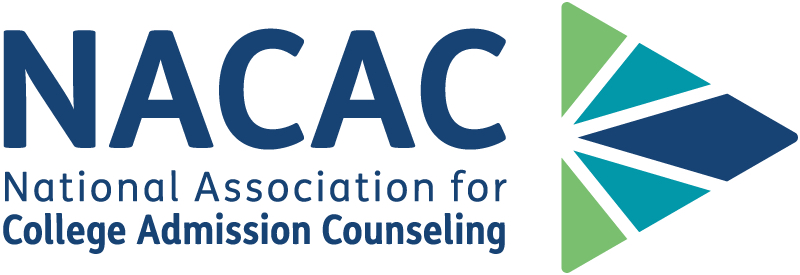
Login to My ivyO Portal
Welcome back! Please login with your email and password.
Haven’t registered?

Given top American colleges and universities' world-renowned reputation, academic flexibility and excellence, little wonder that year on year, international students keep flocking to the US for their postsecondary education at top institutions, like the Ivy League.
But for parents and students alike, the deliberation process involved in deciding whether or not to study abroad in a faraway land can be complex and daunting.
Hours of online research may not make things any clearer for you; in fact, it could leave you even more puzzled and perplexed due to misinformation widely spread across the internet and information overload.
Case in point, Google “US college admissions”, and you’ll get about 791 million results! Questions like, "How to get into Harvard" boast similarly overwhelming search results, making the college application process overwhelming for many students and families. So, where do you start or finish your research?!
For many aspiring students and their families trying to figure out whether to study abroad or otherwise, the three questions that they most frequently ask are:
All great questions, and they keep many parents up at night.
We understand; let us dial down your stress for you.
All three questions involve important issues, and almost all of them are impacted by your student and your family’s individual circumstances. A good fit for a student in your neighborhood may not suit your student at all.
Moreover, studying abroad may not even be the best option for your student. If that were the case, it is unfortunate but true that most university admissions consulting companies may not tell you as it is against their commercial interests.
At ivyO, we will always tell you what you need to know, even if it is not what you want to hear.
If studying abroad is the best option for your student, ivyO will help you research, find and gain admission to the best-fit university for your student, whether that happens to be in the US, the UK or Australia.
But if your student’s best option is to attend a local university in your home country, we’ll tell you that too. Not many university admissions consulting companies out there would do that because it hurts their revenue and profits.
To get onto the right path for your student's US college admissions journey, all you have to do is to sign up for the ivyO Strategic Consultation. Don’t forget, you don't have to go alone, ivyO is here to help.
Now, with regard to Question 3 above, here are 5 compelling reasons why you should consider the US, it may be the best-fit education destination for your child’s undergraduate studies. But remember, it’s important for you to sign up for the ivyO Strategic Consultation. That’s when we begin to help you sort out and prioritize your university admissions goals.
Anyway, here are 5 unique reasons why the US should be on your radar:
1. You want to go to an Ivy League School
While ivyO vigorously advocates the fact that the US higher education space is much more than the Ivy League, it is widely recognized that the Ivy League schools are among the most coveted educational institutions in America. Indeed, the Ivy League is synonymous with academic excellence, exclusivity and prestige that opens up a world of opportunities and access to a powerful alumni network.
If you aspire to study at an Ivy League school, and millions around the world do just that, then simple geography dictates that the US is the place for you.
What is the Ivy League, you may ask? Well, the Ivy League schools (or Ivies for short) comprise of eight institutions: Harvard, Yale, Princeton, The University of Pennsylvania, Columbia, Brown, Dartmouth and Cornell.
You may ask, “Why is it called the Ivy League?”
Well, the most reliable source is an article allegedly published in the New York Herald-Tribune in 1937. The author of that articles was Caswell Adams, a sportswriter, who was sent to cover a football match between the University of Pennsylvania and Columbia University. The story goes that Adams was not happy, as he wanted to cover the game that involved his alma mater, Fordham University. So, Adams complained to his superior about the task of writing about those "Ivy-covered" universities. Shortly after, in his article about the football match between Penn and Columbia, the term "Ivy League" was coined by Adams. As they say, the rest is history.
Others claim an even more novel origin of the term "Ivy", legend has it that once upon a time, the “League” only had 4, not 8, members: Harvard, Yale, Princeton and the University of Pennsylvania. Adopting the Roman numeral, the League of 4, became known as “The IV League.”
Well, it is an amusing assertion. Regardless of the origin of the name, the Ivy League schools are iconic institutions, keenly sought by students from all corners of the globe, despite the 8 Ivy schools’ ever-increasing selectivity and record-low admit rates.
2. You are so much more than your Academic Transcript
One of the US system's most unique features is the "holistic admission" process. Now you may ask, "What is holistic admissions?”
Well, it means that the admissions officers (AOs) at elite US colleges, like the Ivy League schools, look at your academics and many other factors when assessing and evaluating your application. These include, but are not limited to:
Holistic admissions give you more room to maneuver and craft a compelling profile for your US college applications, rather than just submitting your transcript and solely relying upon your academic strengths to get you admitted to your desired university. The latter strategy generally don’t work well under the US holistic admissions process. In particular, the Ivy League schools and other top US institutions look for far more than just grades in considering which students to admit.
So, for instance, if you are authentically passionate about your extracurricular pursuits and have achieved at a high level, that counts for holistic admissions.
If you work one or more part-time job after school to help balance the family budget, that counts for holistic admissions.
And if you help your family at home and look after an elderly loved one – that too counts for holistic admissions.
The list is endless, the best thing you can do is to talk to us. Sign up for an ivyO Strategic Consultation today!
Just a small caveat – grades still hold great importance in the holistic admissions system. But it is only one part of your college application, not the totality.
If you want to use certain aspects about you, like your extracurriculars to bolster your admissions possibilities, then there is no question that the US system is the one that plays best to your strengths.


Site built and powered by ivyO
Copyright © 2026 ivyO. All rights reserved.
Privacy Policy|
Terms of Use|
Terms and Conditions of Sale
ivyO is not associated with the Ivy League or any of its affiliates
Due to an extended period of inactivity, you're about to be logged out.
To prevent this, please click "Continue" below.